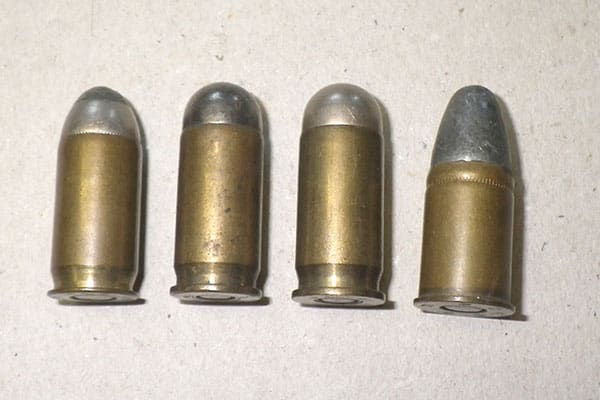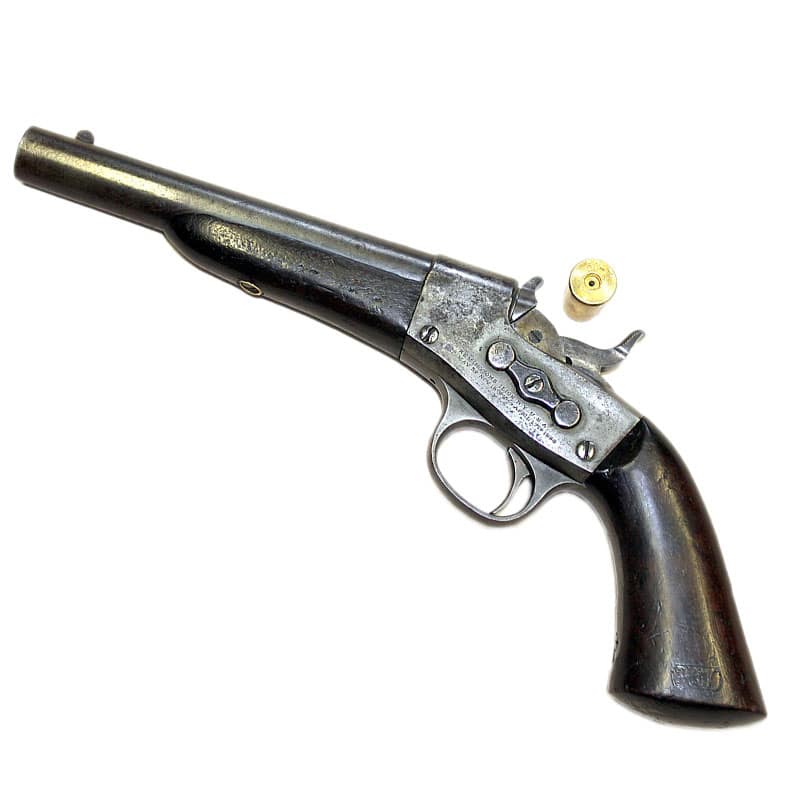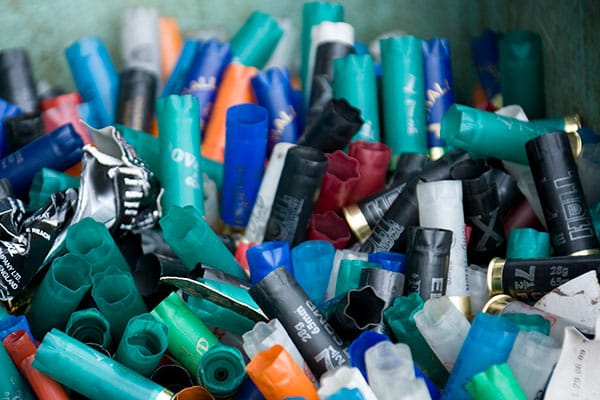
Changes to the law on antique firearms
Explaining the Antique Firearms Regulations 2021, the law which defines which firearms can be classed as antique, thus exempt from licensing.
Get information on the legal shooting season for mammals and birds in the UK.
Learn about our current conservation projects and how you can get involved.
Comprehensive information and advice from our specialist firearms team.
Everything you need to know about shotgun, rifle and airgun ammunition.
Find our up-to-date information, advice and links to government resources.
Everything you need to know on firearms law and licensing.
All the latest news and advice on general licences and how they affect you.


Firearms Antique and imitation firearms
Section 58(2) of the Firearms Act 1968 provides that an antique firearm which is possessed as a “curiosity or ornament” is no longer subject to the provisions of the Act.
This piece of legislation forms the basis for the free possession of antique firearms. The concept of not needing a licence for an old gun is well established and stems from the Pistols Act 1903.
The antique exemption does not extend to ammunition. Collectors of bulleted cartridges – irrespective of their age or ignition system – require police authority to possess them.
Paragraph 8.12 note (i) of The Home Office’s Guide on Firearms Licensing Law 2021 states “the exemption does not apply to ammunition, and the possession of live ammunition suitable for use with an otherwise antique firearm may indicate that the firearm is not possessed as a curio or ornament.” This is a sweeping statement which is routinely used as the justification for prosecution in cases where it is alleged that an antique firearm was not possessed as a curiosity or an ornament.
Whether or not a firearm is kept as a curiosity or ornament remains a matter of fact and degree in every case. There is no legal definition of what might constitute “a curiosity”. The Shorter Oxford Dictionary gives a number of meanings within the wider definition which assist. ”A fancy, a whim; a hobby.” ”A scientific or artistic interest; connoisseurship.” “The quality of being interesting on account of novelty or strangeness.”
When interpreting any statute, the Literal Rule must be used. This means that words or phrases should be construed by the courts in their ordinary sense and the ordinary rules of grammar and punctuation should be applied. When this rule is applied, if a clear meaning appears, then this must be used.
The courts do not enquire whether what the law says represents the intention of the legislature. “The intention of Parliament is not to be judged by what is in its mind but by the expression of that mind in the statute itself.” Some firearms licensing personnel try to justify perverse interpretations of law by referring to “the spirit of the Act”. That is both unprofessional and wrong.
When it included the word “curiosity” in the exemption for antique firearms, Parliament did not intend it to be construed in anything other than its ordinary sense. It is clear from the dictionary that its meaning includes the vital criterion of a personal interest in something that is unusual.
The meaning of the word “ornament” is self-evident and needs no further comment. It is something which is kept as an adornment. Merely because something is kept as an ornament does not mean that it has to be placed on display. Something which is hanging on the wall or displayed in a cabinet is clearly an ornament. If the same object is not displayed it does not preclude it from being kept as an ornament.
The phrase “kept as a curiosity or an ornament” is capable of very wide interpretation. An essential ingredient of this interpretation must include the intention of the person who owns the antique firearm. If the Crown does not believe that the owner of the firearm has any intention to keep it as a curiosity or ornament, then it must prove – beyond reasonable doubt – that this is not the case.
It is a quantum leap to allege that because somebody possesses ammunition suitable for use in a firearm then he does not possess it as a curiosity or an ornament. Possession of ammunition without authority often constitutes a criminal offence, but it does not automatically invalidate the quality of possession of the antique.
There is a ridiculous notion that because someone holds an antique firearm and ammunition on a firearm certificate then he is disbarred from owning similar firearms as antiques under Section 58(2).
It is an article of faith within the firearms licensing community that the possession of any suitable ammunition with an antique firearm automatically invalidates any claim under the Section 58(2) exemption. This is manifestly wrong. It is based on the notion that because someone possesses suitable ammunition for an old gun, then he or she intends to fire it. This is another quantum leap because intent is very difficult to prove.
Several scenarios come to mind where someone owns an antique firearm and suitable ammunition without prejudicing a claim made under the 58(2) exemption. It is perfectly normal for somebody to want to obtain original specimens of ammunition to complement an antique firearm.
Most owners of Pattern 1853 Enfield rifle-muskets would want an original packet of paper cartridges and some original percussion caps. These are not controlled. Similarly, a collector who owns a pin fire shotgun may wish to have original cartridges to go with it (as there are no controls on the possession of Section 2 shotgun cartridges, then no additional offence is committed in this respect).
Someone may own four different .577/450 Martini-Henry rifles and decide to use one of them. This does not then automatically prejudice his or her possession of the other three Martini rifles. He/she possesses one rifle and ammunition under the authority of a Firearm Certificate – Section 1 of the Act; and the other three under the antique exemption at Section 58(2). The two separate authorities do not prejudice one another.
It flows from this that the mere possession of suitable ammunition for use in an antique firearm does not create a prima face case that its owner is not entitled to claim the exemption at Section 58(2). There must be proof of intent to fire the gun. However, anybody who owns an antique firearm and suitable ammunition must ensure that he or she does nothing which compromises the possession aspect of the exemption for antiques.
For further information about antique firearms please refer to Chapter 8 of the Guide on Firearms Licensing Law 2021 by the Home Office. This document is available from www.gov.uk or may be downloaded from BASC’s website.
Got a question? Email us on firearms@basc.org.uk or call 01244 573 010.
© BASC July 2023

Explaining the Antique Firearms Regulations 2021, the law which defines which firearms can be classed as antique, thus exempt from licensing.

Many parts of the UK are covered by protected sites and permission is likely to be required in order to shoot or manage the land for shooting and conservation.

According to guidance from the Environment Agency (EA), spent shotgun cartridges are classed as a ‘directive waste’.
Sign up to our weekly newsletter and get all the latest updates straight to your inbox.
© 2023 British Association for Shooting and Conservation. Registered Office: Marford Mill, Rossett, Wrexham, LL12 0HL – Registered Society No: 28488R. BASC is a trading name of the British Association for Shooting and Conservation Limited which is authorised and regulated by the Financial Conduct Authority (FCA) under firm reference number 311937.
If you have any questions or complaints about your BASC membership insurance cover, please email us. More information about resolving complaints can be found on the FCA website or on the EU ODR platform.
This website uses cookies so that we can provide you with the best user experience possible. Cookie information is stored in your browser and performs functions such as recognising you when you return to our website and helping our team to understand which sections of the website you find most interesting and useful.
Strictly Necessary Cookie should be enabled at all times so that we can save your preferences for cookie settings.
If you disable this cookie, we will not be able to save your preferences. This means that every time you visit this website you will need to enable or disable cookies again.
This website uses Google Analytics to collect anonymous information such as the number of visitors to the site, and the most popular pages.
Keeping this cookie enabled helps us to improve our website.
Please enable Strictly Necessary Cookies first so that we can save your preferences!
More information about our Cookie Policy